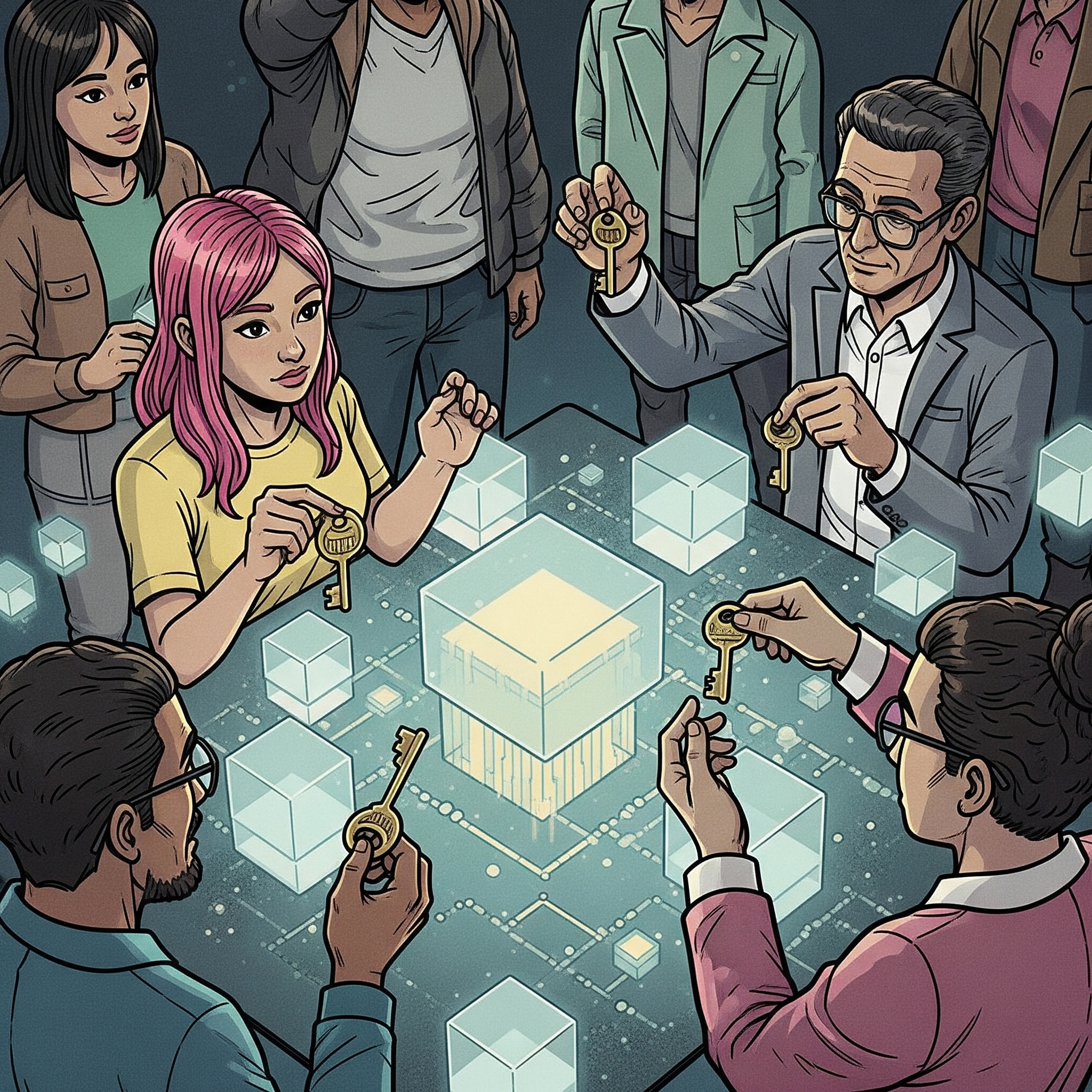The Future is Now: Unpacking Web3.0 and What it Means for Your Business
The internet is on the cusp of a seismic shift. We are moving beyond the era of corporate-controlled platforms and into a new, decentralized digital landscape known as Web3.0. For businesses and entrepreneurs, this evolution presents both exhilarating opportunities and complex legal questions. Understanding the fundamentals of Web3.0 is no longer optional; it’s essential for navigating the future of commerce and innovation.
For the past two decades, our online lives have been largely governed by “Web 2.0.” Think of platforms like Facebook, Google, and Amazon, where a central entity controls the data and the user experience. Web3.0, powered by blockchain technology, flips this model on its head. At its core, it’s about returning ownership and control to the individual user.
Understanding the Pillars of Web3.0
To grasp the potential of this new internet, it’s crucial to understand its foundational principles. These concepts are not just technical jargon; they represent a paradigm shift in how we interact with the digital world.
Decentralization: Power to the People
In the current Web 2.0 model, our data is stored on centralized servers owned by large corporations. This gives them immense power over our digital lives. Web3.0 utilizes decentralized networks, where data is distributed across countless computers worldwide. This eliminates the single point of control, making the internet more resilient, censorship-resistant, and democratic.
Blockchain: The Trust Machine
Blockchain is the technology that underpins Web3.0. It’s essentially a shared, immutable ledger that records transactions and data in a secure and transparent way. Every transaction is verified by multiple participants in the network, making it incredibly difficult to alter or tamper with information. This “trustless” environment, where you don’t need to rely on a third party to validate interactions, is a cornerstone of Web3.0.\
User-Owned Data: Reclaiming Your Digital Identity
In the Web3.0 era, you are the master of your own data. Instead of tech giants monetizing your personal information, you have the power to control who accesses it and how it’s used. This concept of “self-sovereign identity” empowers users to manage their digital footprints and even be compensated for the data they choose to share.
New Frontiers: Business Models in the Web3.0 Economy
The shift to a decentralized internet is unlocking a wave of innovative business models. Forward-thinking entrepreneurs are already exploring these new frontiers, creating value in ways previously unimaginable.
Decentralized Autonomous Organizations (DAOs)
DAOs are essentially organizations run by code and controlled by their members, with no central leadership. Decisions are made collectively through voting mechanisms tied to ownership of digital tokens. This model is being used to govern everything from investment funds to creative collectives.
The Token Economy and NFTs
Tokens are digital assets that can represent ownership, access rights, or a stake in a project. Non-fungible tokens (NFTs) are unique digital assets that have taken the art and collectibles world by storm. For businesses, tokens can be used to incentivize user participation, build loyal communities, and create new revenue streams.
Play-to-Earn (P2E) and Create-to-Earn (C2E)
The gaming and creative industries are being revolutionized by “play-to-earn” and “create-to-earn” models. In these ecosystems, users are rewarded with valuable digital assets for their participation and contributions. This creates a more equitable and engaging experience for players and creators alike.
Navigating the Legal Labyrinth of Web3.0
As with any disruptive technology, Web3.0 brings with it a host of new legal and regulatory challenges. Navigating this evolving landscape requires a deep understanding of both technology and the law.
The Ambiguity of Smart Contracts
Smart contracts are self-executing contracts with the terms of the agreement directly written into code. While they offer efficiency and automation, they also raise complex legal questions. For instance, how are disputes resolved when the code is the contract? What happens if there’s a bug in the code?
Data Privacy in a Decentralized World
The General Data Protection Regulation (GDPR) and other data privacy laws were designed for a centralized internet. Applying these regulations to a decentralized environment, where data is distributed across a global network, presents significant challenges. Businesses operating in the Web3.0 space must be mindful of these evolving privacy considerations.
Intellectual Property and NFTs
The rise of NFTs has created a new frontier for intellectual property law. Questions around ownership, copyright, and licensing of the underlying assets tied to NFTs are still being debated and defined. Creators and collectors need to be aware of the legal implications of buying and selling these unique digital assets.
The transition to Web3.0 is not just a technological upgrade; it’s a fundamental reimagining of the internet. For businesses, this presents a unique opportunity to innovate, build stronger communities, and create more equitable business models. However, the legal and regulatory landscape is complex and constantly evolving.
At WHYFIRM, we are at the forefront of this intersection between technology and law. Our team of experienced legal professionals understands the nuances of Web3.0 and can help you navigate the opportunities and challenges it presents. Whether you’re launching a DAO, issuing NFTs, or developing a decentralized application, we provide the expert legal advisory you need. We also offer a cutting-edge “Smart Contract” review service, providing fast and affordable analysis to ensure your automated agreements are secure and legally sound. Contact us today to learn how we can help your business thrive in the new digital era.

